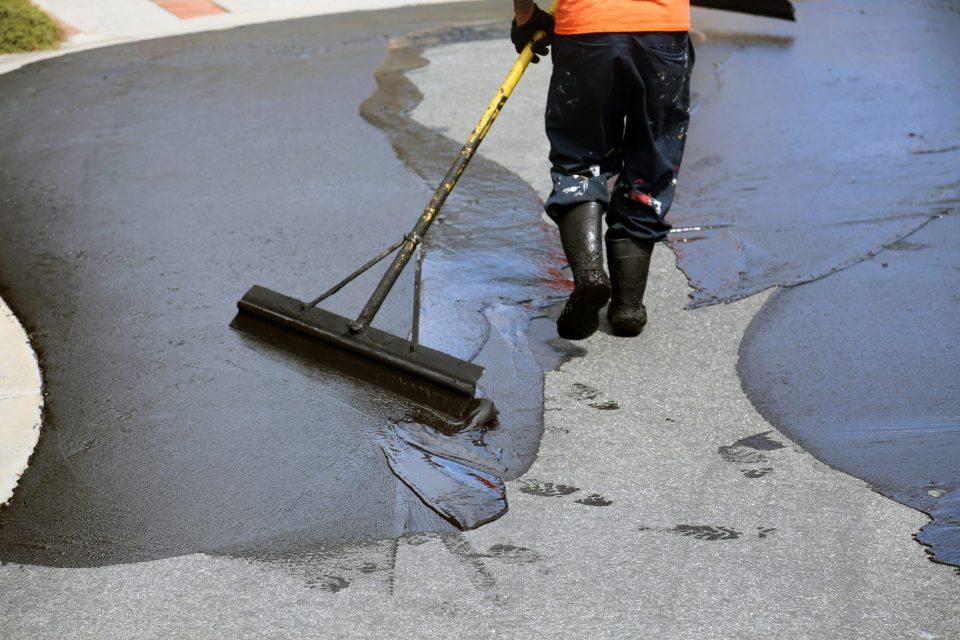Australians take pride in a tidy, well-maintained property. Yet, the driveway is frequently neglected until cracks, stains, and weed growth become impossible to ignore. Sealing your driveway isn’t a cosmetic indulgence; it’s a crucial step to safeguard your investment.
A quality seal protects against weather, oil spills, and abrasion, prolonging your driveway’s life and saving you money on future repairs. This guide explains why sealing matters, what influences the cost, and how professionals like Warren Pressure Washing deliver lasting results.
Get a free assessment and discover how affordable and effective driveway sealing in Australia can be.
Why Seal Your Driveway?
Driveways endure constant vehicle weight, tyre friction, and exposure to the elements. Without a protective barrier, moisture penetrates concrete or asphalt, causing cracks and spalling (flaking). Dirt and oil stains can also become permanent.
Sealing creates a shield that repels water, resists stains, and reduces freeze-thaw damage. It’s one of the most affordable ways to maintain your outdoor surfaces. Beyond durability, a sealed driveway looks cleaner and can increase property value by enhancing curb appeal.
Factors Affecting Cost
There’s no one-price-fits-all for driveway sealing. Costs vary based on several key factors:
- Size and Shape: Larger driveways require more material and labour. Complex shapes or curves take longer to prep and seal.
- Surface Condition: Cracked or stained surfaces need repairs or power washing before sealing, increasing labour time. Removing old, failed sealers or paint also adds to the cost.
- Material Type: Concrete, exposed aggregate, and asphalt each need different sealers. Premium sealers with UV inhibitors or colour tints cost more than basic acrylic products.
- Number of Coats: Highly porous surfaces may need multiple coats for full protection.
- Location: Accessibility and local labour rates influence the final quote.
Industry sources suggest that driveway sealing in Melbourne is highly affordable compared to repaving, but you should always request a detailed quote. A professional assessment will account for your specific surface condition and preferred finish.
Surface Types and Sealer Options
Concrete
Concrete driveways are durable but porous. They benefit from penetrating sealers that soak into the surface, creating an invisible barrier against water and stains. For decorative finishes, acrylic colour sealers add pigment and a fresh sheen. Some homeowners prefer a gloss clear coating for a ‘wet look,’ though this can become slippery when wet and may not suit sloped driveways.
Exposed Aggregate
Exposed aggregate surfaces are beautiful but trickier to seal. Harsh chemical stripping or aggressive wire brushing can dislodge the aggregate, so a proper surface assessment is essential. A penetrating sealer with UV protection is ideal to preserve the natural texture and colour. Avoid thick, film-forming coatings that will obscure the aggregate’s unique finish.
Asphalt
Asphalt driveways need sealers specifically formulated for bitumen. These products restore the rich, dark black colour and protect against oxidation and oil stains. Because asphalt is flexible, its sealers must also flex with temperature changes to prevent cracking.
The Professional Preparation Process
Preparation is the most critical step for a successful sealing job. Here’s how professionals approach it:
- Cleaning: High-pressure washing removes built-up dirt, algae, and oil. If paint or chemical spills are present, eco-friendly strippers or citrus-based gels can lift them without damaging the concrete.
- Repairs: All cracks are filled and spalled areas are patched. Failing to fix these issues means the sealer won’t bond properly and the damage will continue underneath.
- Environmental Considerations: Runoff from cleaning and stripping must be contained to protect local waterways. Professionals follow council guidelines and use biodegradable products where possible.
- Permits & Inspections: Heritage overlays or strata communities may require permission for driveway repairs. It’s always wise to check with local authorities before starting major work.
Application and Curing
Professional sealing follows a structured process:
- First Coat: The sealer is applied evenly with a roller or spray system. Technicians ensure consistent coverage and avoid overlapping marks.
- Drying Time: Most sealers dry to the touch within a few hours. However, the driveway must be kept free of foot and vehicle traffic until fully cured, typically 24–48 hours.
- Second Coat (if needed): Highly porous surfaces or those requiring a richer colour may need a second coat after the first has dried.
- Final Inspection: After curing, professionals check the surface for uniformity, adhesion, and consistent gloss. Any minor touch-ups are completed at this stage.
Regional Climate Considerations
Sealer choice should reflect your regional climate. In sunny areas like northern Queensland, UV protection is crucial to prevent fading. In wet or cold regions, choose sealers with anti-slip additives and strong water repellency. Melbourne experiences both extremes, so a versatile sealer with both UV inhibitors and moisture protection works best. For driveways heavily shaded by trees, anti-mould additives can prevent green growth.
DIY vs. Professional Sealing
While DIY kits exist, achieving a durable, even finish requires experience, surface knowledge, and the right tools. High-pressure washing and chemical stripping can easily damage surfaces if misused.
By contrast, professionals like Warren Pressure Washing use commercial-grade equipment and are trained to assess material types and choose the appropriate sealer. They also handle environmental safety and warranty their work. For most homeowners, the minor cost difference is heavily outweighed by the longevity and peace of mind a professional job provides.
Maintenance and Resealing
A sealed driveway isn’t maintenance-free; it just makes upkeep significantly easier. Sweep away leaves and debris regularly, wash off oil spills promptly, and avoid using metal shovels that can scratch the surface.
When water stops beading or the finish looks dull, it’s time to reseal—typically every three years. Scheduling resealing before small cracks become large ones prevents much larger repair bills down the line.
Conclusion
Driveway sealing is a smart investment that protects your property, reduces maintenance, and enhances curb appeal. By understanding the cost factors and committing to a thorough preparation and application process, you can enjoy a surface that looks fresh and lasts for years.


